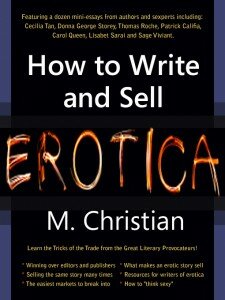WHEN NOT TO USE A PSEUDONYM AND WHY
When Bjo Trimble (justly famed as the “woman who saved Star Trek”) advised author and editor Ted White that she was thinking of using a pseudonym on a science fiction novel she was writing, told her bluntly, “Don’t. An author’s name is his or her stock in trade. It is what you want readers to be thinking of when they are at a bookstore looking for a book to read. The easier you make it for them to associate the name with a real person, the easier you make it for them to remember the name in the future.”
Ted White, then, was all for a writer using their real name rather than a pen name that would conceal their identity. It seems to work. When I go to the bookstore these days I am looking for Cathy Reichs, James Lee Burke, or the new Peter Robinson. All are real people with real names.
There are notable exceptions to this rule. Mark Twain, for instance. But there is not much confusion. Mark Twain lived so much of his life openly as Twain, that I would not be surprise if you, too, didn’t think of him first as Twain and then as Clements.
Clearly, this is not an absolute rule. None is. There exceptions. But consider carefully before deciding to make exceptions. Nothing less than your future writing career is at stake.
Consider: Suppose you create a pseudonym and then after writing several books change your mind and decide to come out as yourself and start writing books under your own name. Unless you are writing a completely different type of book now and will not be appealing to your former readers, you will lose some large percentage of your original audience, the one you developed for your pseudonym, and never gain it back. Changing horses in midstream like this is counterindicated.
WHEN TO USE A PSEUDONYM
There are three major justifications for using a pseudonym, when it may be and probably is to your advantage to hide your identity behind a made up name.
The first is that using your real name on something tgat could cost your job or customers – in short income. You could be writing a series of thinly disguised books about real people you know or work with, who would fire you or stop patronizing your business if you published it under your own name. Or, it might be works that exposed secrets of, or made fun of, your industry, job, or profession, where the results would be the same. For that matter, if you are in a profession that takes it self seriously, like banking or academe, and you seem to be writing what your bosses and colleagues consider frivolous, like pulpish mystery thrillers, it could be seen as lowering your gravitas, and you might find yourself eased out the door. Or some other variant where putting your name on the book would place you in serious jeopardy of serious financial loss.
The second major justification for employing a pseudonym rather than your actual moniker is that it would cost you friends or loved ones. This is almost always a case where you are writing about friends, family and acquaintances, and presenting things they have said and done that are embarrassing, unattractive, or that even show them in a very bad light. Things that if written under your own name, and read by mutual acquaintances, would very likely lead to the person you were describing being recognized by everyone, causing the subject of the piece humiliation and likely generate furious anger at you as well.
The third is that you are writing something so inflammatory that that it might put you in danger of losing both job/income and your family/friends. These days that often comes down to erotica. Writers living in small towns, or whose friends, families and associates are conservative in bent, are making s sensible choice when they put a pseudonym on their works. Of course, in a sophisticated city like San Francisco or New York, the effect might be the reverse, and being known as someone who writes erotica may enhance the luster of one’s reputation. Whatever the reason, today, unlike the 1960s and 1970s, many authors proudly put their own names on their erotica.
Sometimes writers producing stories and books on more than one genre will use their true names for books in one genre and a pseudonym on books intended for a different genre. At one time it was considered that if a person was going to write mysteries, and say westerns, that mystery readers would avoid books by someone who also wrote westerns because they would think the author was not really serious about mysteries. And that readers of westerns would disdain anyone who wrote contemporary mysteries with urban settings because they would feel that a writer who could do that well could not possibly capture the authentic feel of the old west. Today, however, that seems to be changing. Increasingly, readers seem willing to accept what are called crossgenre writers, who excel at producing stories of more than one type. Elmo Leonard is accepted as both a western writer and a mystery novelist, while a number of major fantasy novelists are also accepted as authors of credible, realistic mysteries.
I will have a few words to say about choosing pseudonyms in my next post.












Recent Comments